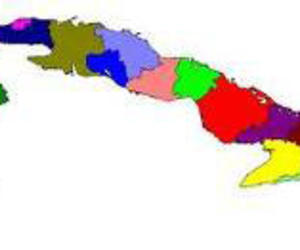Report: Cuba May Free More Political Prisoners
- Submitted by: manso
- Politics and Government
- 10 / 04 / 2010

HAVANA (CBS4) Human rights activists claim the Cuban government is approaching jailed political prisoners, asking if they would accept release from prison in return for exile from Cuba. If true, this would mark the second time in 2010 that Cuba has traded freedom for exile form political prisoners, actions raising questions among South Florida's exile community.
About a dozen prisoners have been contacted, sources say, but there has been no confirmation from the Cuban government.
Agents from the Ministry of the Interior have visited about 12 political prisoners in their cells in recent days and offered them the chance to go free as long as they accept exile, said Elizardo Sanchez, head of the Cuban Commission on Human Rights and National Reconciliation.
Sanchez said late Saturday that he received the information from relatives of some of the prisoners who had been offered the deal.
Why Cuban authorities have pushed to reduce the number of political prisoners is unclear, though some have speculated it may be part of an effort to promote reconciliation with the United States.
Officials from the administration of President Barack Obama have long suggested it may be time for a new beginning with Cuba — but have also said they would like to see the island embrace small economic and social reforms before a true thaw can take place in 50 years of frigid relations.
In addition to freeing political prisoners, Cuba's government announced last month that it will lay off a half-million state employees and reduce restrictions on self-employment, small businesses and pockets of free enterprise as a way of modernizing and overhauling its state-dominated economy.
In a landmark deal brokered by officials from the Cuban Roman Catholic Church and the Spanish government, Cuban President Raul Castro agreed in July to free 52 opposition activists, community organizers, dissidents and journalists.
Under the deal, 39 prisoners have been released so far and sent with their families into exile in Spain, with one of them settling in Chile. If the remaining 13 are freed, it would empty Cuban prisons of all 75 top activists arrested.
Cuba maintains that it holds no political prisoners. It says the 75 had been convicted and sentenced to lengthy prison terms on charges including treason and taking money from the U.S. government to destabilize the island's political system.
At least seven political prisoners due to be released under the July agreement do not want to leave Cuba, according to the island's cardinal, Jaime Ortega. That could put future releases in jeopardy: While neither the Church nor the government has said leaving the country is a prerequisite to release, it has clearly smoothed the way.
Source: http://cbs4.com/local/Cuba.approached.political.2.1944355.html
Comments